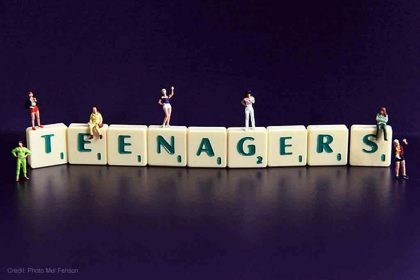The expert’s guide to parenting smarter – by doing less and expecting more
For years, working mums have been sold the line that if we want to succeed, we just need to be more organised.
That we need to ‘up our game’ to fit everything in. That if we drop the ball, it is out fault. If our children aren’t excelling, it is our fault. That if we want to have it all, we will have to do it all.
With so much to remember, so much to feel responsible for, and so much to do, it is hardly surprising many of us are buckling under the load.
If you have ever found yourself at the end of the day run ragged by trying to do it all but still feeling like you’re failing, you’ll know that cramming in more and more is not the magic key to unlocking a happy family life. Rushing reluctant children from one activity to the next while you crunch through your To Do list doesn’t feel like success.
In fact, from a child development perspective, hyper-efficient Supermum mode is the exact opposite of what children really need from us. Children need parents who are playful and curious and emotionally attuned – not parents who are always three steps ahead and focused on a never-ending list of tasks and goals.
The real secret to success as a working mum is being able to switch out of our ultra-organised mode in order to connect and be present in the moment with our children. And that means doing less, not always trying to do more.
The problem with hyper-efficiency
The problem with the hyper-efficient approach to parenting is that it just doesn’t fit with children’s brains. The part of the brain that fuels adults’ goal-focused efficiency thinking is not fully developed in children. Children operate much more in the moment. And they are gloriously open to distraction – which is great for play and for maximising learning.
When parents are in ultra-organised mode, we tend to be blinkered and single-minded. Which is the opposite of child-mode. For you, the purpose of a trip to the supermarket might be to buy everything on your shopping list as quickly as possible and get home again to start cooking.
For your child, the purpose of any outing is to jump on things and under things, to touch things and taste things, to encounter the universe through their senses and learn all about it.
When parents get stuck in hyper-efficient mode, we can end up constantly chivvying our children from task to task. Always hurrying to get things done, we pull in the opposite direction from our children with the result that nobody’s needs get met. And everyone feels frustrated.
Make space for playfulness
Working mums are so overloaded with a sense of responsibility that we are, ironically, often too busy and too tired for the antidote. Playfulness. Play fuels children’s development, makes parenting enjoyable, strengthens family bonds and boosts everyone’s wellbeing.
Creating more space for playfulness will give you room to breathe, to relax, to laugh a little more (and shout a little less) and enjoy being a member of your family. If you take the play out of parenting, all you are left with is the drudgery.
So, don’t be a slave to your To Do list. Have some downtime. Carve out pockets of playfulness, of hanging out and being affectionate. Immerse yourself wholeheartedly in play (reluctantly shuffling Lego pieces while you plan dinner in your head is not going to cut the mustard!).
Horse around, tickle, chase, play a manic driving game with your tween. Be in the moment, step out of organisational mode, waste time and enjoy it. Play is the pixie dust that makes our lives feel lighter.
Do less, not more
Would-be Supermums constantly worry that we are not doing enough for our children. Actually, we are often doing more than is good for them.
Wracked with guilt that we are not ‘there’ enough, we dedicate our non-working hours to supporting our children to succeed. We apply those super-developed hyper-efficiency skills to planning and organising every aspect of their lives – detecting and anticipating problems, vigilantly removing obstacles from their paths and rescuing them from potential discomforts.
We are risk-averse and interventionist project managers who give our children too little responsibility, allow them too little independence and expect too little from them.
By doing too much for our kids, working mums not only risk grinding ourselves into exhaustion, we deprive our children of opportunities to learn, to succeed and to feel good about themselves.
Parental involvement is a great thing. But taking over and doing too much for children negatively impacts on their development. Grinding ourselves down doing menial tasks for children who are old enough to do those things for themselves is not an act of love, it’s an act of developmental sabotage. And it means you will never have enough time to enjoy being a member of your family.
A to-do list approach to family life will always leave you feeling like a failure, like you should be doing more. Because there will always be something left on the list that you haven’t accomplished.
So do a bit less. Expect a bit more from your kids. Allow them to fail sometimes, and to learn from it. Have some downtime. Be silly, not Supermum. Sometimes, when it comes to parenting, less really is more.
Anita Cleare is a parenting expert and director of the Positive Parenting Project. Her book The Work/Parent Switch is a guide to positive parenting for working parents.
Photo by Sharon McCutcheon










